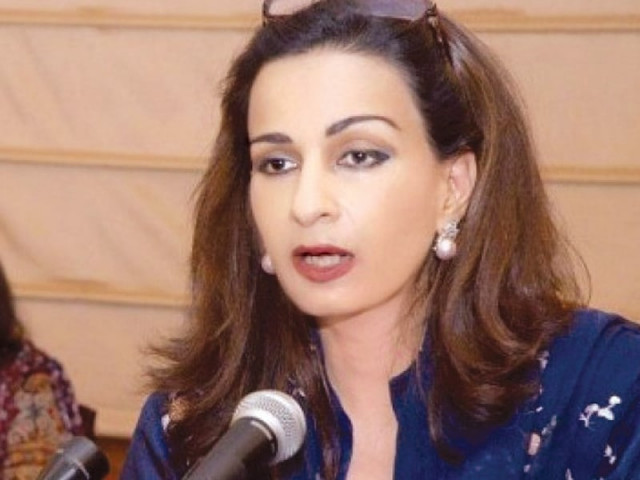Conference: ‘Gap between Pakistan, US can be overcome through bilateral efforts’
Speakers discuss the divergence between Pakistan and the US.

Both Pakistan and the United States are seeking strategic stability in the region, so there cannot be a strategic disconnect -- the divergence is only a tactical disconnect.
This was stated by former federal minister and President Jinnah Institute Sherry Rehman. She was the keynote speaker at a one-day conference on “Pakistan-US divergence: Can the gap be bridged?” here on Thursday, said a press release issued by the Centre for International Strategic Studies (CISS).
Rehman said that in dealing with the US, Pakistan should seek new terms of engagement which should be based on an open and transparent relationship. The two sides should also avoid “ramping up” expectations of each other. She proposed a Track-II process for improving the Pakistan-US relations.
The conference aimed to examine the disconnect between Pakistan and the US in depth, and reach conclusions as to whether it can be overcome. The conference covered both Pakistani and American perspectives.
Earlier, in his welcome remarks, CISS Executive Director Ambassador (retd) Ali Sarwar Naqvi described Pakistan-US relations as the interplay of divergences and convergences, as the genesis of the relationship was one of cross-purposes. He said, however, that in the worst of times meaningful bilateral cooperation continued, due to mutuality of interests in many areas.
The conference reached a series of conclusions; both Pakistan and US should muster the political will to forge honest solidarity combating terrorism. Pakistan and the US should understand and respect each other’s strategic interest. Both countries should avoid public airing of their bilateral differences. Moreover, they should renegotiate the terms of engagement and work together in pursuit of common interests. The gap created by the divergences can be bridged, if a concerted effort was made by both sides.
The conference progressed in three sessions: “Changing Security Environment in South Asia”, “Pakistan-US Relations post 9/11”, and “Future Outlook of Pakistan-US Relations”, and was addressed by a number of speakers including Dr Riffat Hussain and Dr Tahir Amin of Quaid-i-Azam University, Ambassador (retd) Ayaz Wazir, Lt Gen. (retd) Kamal Matinuddin, Dr Zafar Iqbal Cheema of the National Defence University and Simbal Khan of the Institute of Strategic Studies Islamabad. The Political Counsellor of the US Embassy, Jonathan Pratt, presented the US perspective.
Published in The Express Tribune, November 4th, 2011.



















COMMENTS
Comments are moderated and generally will be posted if they are on-topic and not abusive.
For more information, please see our Comments FAQ